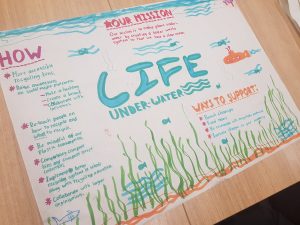 As educators, our mission is to nurture the potential within each student, guiding them on a path of growth and discovery. One powerful way to achieve this is through project-based learning. In this blog post, we’ll explore how project-based learning can be aligned with the different stages of child development, from 0 to 21 years of age.
As educators, our mission is to nurture the potential within each student, guiding them on a path of growth and discovery. One powerful way to achieve this is through project-based learning. In this blog post, we’ll explore how project-based learning can be aligned with the different stages of child development, from 0 to 21 years of age.
Early Childhood (0-6 years): Fostering Curiosity
- Exploratory Projects (0-2 years): At this stage, infants are curious about the world around them. Simple projects like sensory play with different textures and materials can stimulate their senses and cognitive development.
- Creative Art Projects (3-6 years): Preschoolers are naturally creative. Encourage them to express themselves through art projects like finger painting, collage making, and storytelling. These activities foster creativity and fine motor skills.
Middle Childhood (7-11 years): Building Skills and Knowledge
- Science and Nature Projects: Children in this stage are eager to understand how the world works. Engage them in science experiments, nature studies, and hands-on projects that promote critical thinking and problem-solving skills.
- History and Culture Projects: Explore history and different cultures through research projects and creative presentations. This helps students develop research and communication skills while fostering an appreciation for diversity.
Adolescence and Early Adulthood (12-21 years): Preparing for the Future
- Career Exploration Projects: High school students can benefit from projects that align with their career interests. This could include internships, job shadowing, or creating portfolios that showcase their skills and achievements.
- Social Impact Projects: Encourage students to tackle real-world issues through projects with a social impact. This not only teaches them about civic responsibility but also empowers them to make a difference in their communities.
- Research and Innovation Projects: For older students, in-depth research projects and innovation challenges can prepare them for college and careers in fields like science, technology, engineering, and mathematics (STEM).
Incorporating project-based learning into education allows students to take ownership of their learning journey, fostering curiosity, creativity, and problem-solving skills at each stage of development. By aligning projects with the specific needs and interests of students, educators can inspire a lifelong love of learning and prepare them for a bright future.
